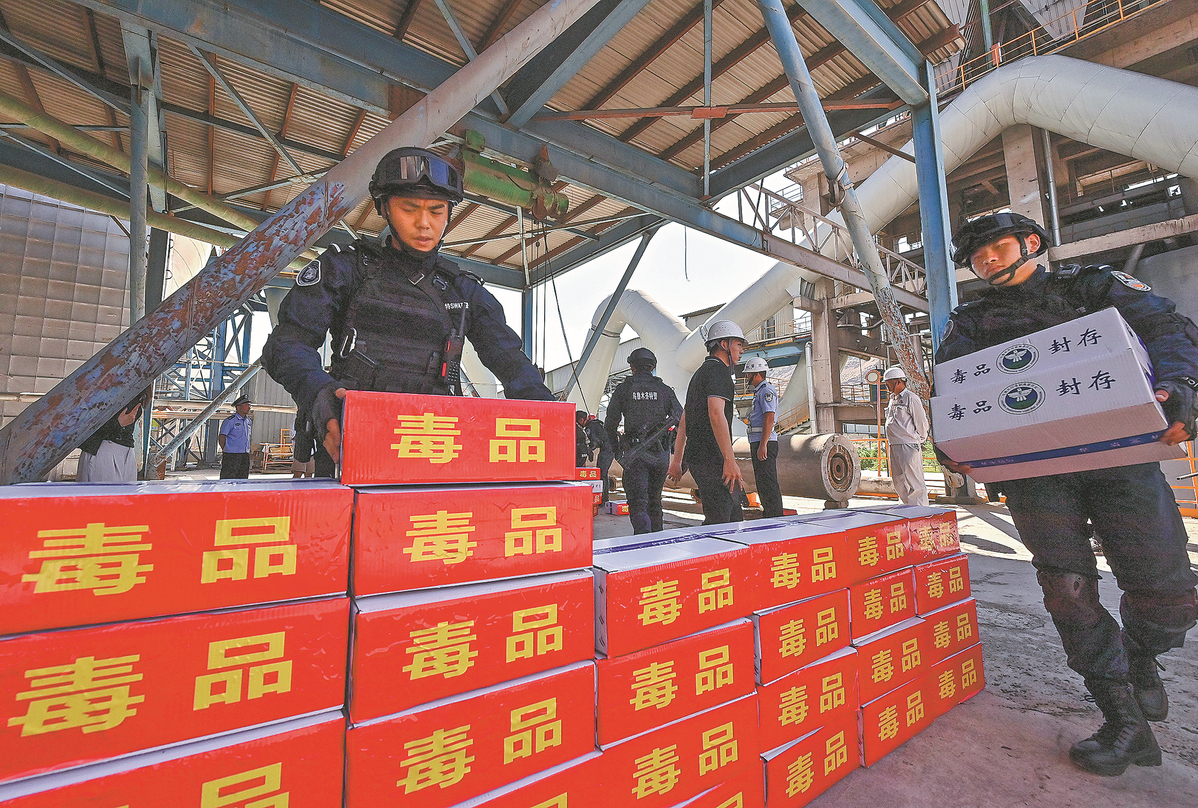Drop in drug arrests indicates progress
Efforts to curb crimes succeeding, but threats evolving, SPP officials say


Procuratorial organs across China approved the arrests of more than 53,000 people for drug-related crimes from January 2024 to May this year, a 14 percent decrease over the previous 16-month period, senior Chinese prosecutors said on Wednesday. While calling the decline a sign of progress, they also warned of evolving threats in drug control.
Miao Shengming, deputy procurator-general of the Supreme People's Procuratorate, announced the figures at a news conference in Beijing, held a day ahead of the International Day Against Drug Abuse and Illicit Trafficking.
During the same period, procuratorial organs nationwide prosecuted more than 65,000 people for drug-related crimes, a figure roughly unchanged from the 16-month period, according to Miao.
"In recent years, the overall number of drug-related criminal cases approved for arrest and prosecution by procuratorial organs has shown a continuous downward trend, indicating significant achievements in China's antidrug efforts," he said.
"At the same time, based on the cases handled, current drug crimes are characterized by a complex interplay of domestic and international elements, as well as traditional and emerging methods, both online and offline," he added.
Miao said the infiltration of overseas drugs into China has intensified, and new types of drug cases are becoming more frequent.
"There is still considerable pressure to prevent drug infiltration from abroad and a rebound in domestic drug abuse," he said.
Prosecutors have also stepped up efforts to tackle drug-related money laundering operations. From January 2024 to May 2025, more than 700 people were arrested and over 1,300 prosecuted for such offenses — a 2.1 percent increase over the same period from 2023 to 2024, according to Miao.
At the same briefing, Yuan Ming, chief of the major crime department of the SPP, highlighted 10 representative drug-related cases, saying they illustrate the growing prominence of new types of drug crimes.
"Traditional drug crimes are declining, while new forms are on the rise," Yuan said, noting a surge in the abuse of addictive substances such as medical narcotic and psychotropic drugs.
Some medical practitioners, he said, have violated regulations, resulting in lax control over these substances and enabling them to enter illegal markets. Offenders are abusing these medications as substitutes for traditional narcotics.
Yuan also noted the increasing use of "noncontact" methods in drug transactions, including online ordering, logistics delivery and online payment. These methods, he said, are more concealed and potentially more dangerous.
Miao emphasized that prosecutors nationwide have maintained a high-pressure stance against drug-related crimes, adapting their strategies to address new trends.
He cited efforts in Fujian province to crack down on cross-border maritime smuggling of large quantities of drugs. Since 2021, prosecutors there have handled 15 cases involving 130 people and a total of 10.5 metric tons of drugs, according to Ruan Haiying, deputy procurator-general of the People's Procuratorate of Fujian province.
- Drop in drug arrests indicates progress
- Crackdown on private sector graft enhanced
- Foreign mediators play crucial role in dispute resolution
- Nation marks 50 years of relations with Mozambique
- European students explore modern China through BFSU program
- From Belgium to studying Chinese medicine in Yunnan: I found my answer at the South Expo





































